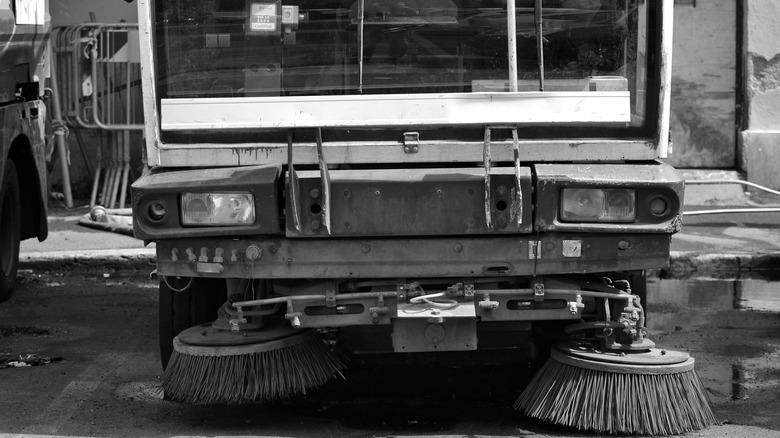The Reason The Mob And The Garbage Industry Are So Connected
In "The Sopranos," Tony Soprano lives with his family in a luxurious New Jersey home with a swimming pool. If a layperson asked what Soprano did for a living to live that lavish life, they would get the less-lavish response, "Waste management." Far from a mere punchline dreamed up by the show's writers, the plot detail reflects the reality that Mafia members are often involved in — if not central to — the garbage industry. Mob involvement in waste management is not a mere front, either; gangster groups are often legitimately responsible for garbage collection in the United States, Italy, and beyond.
The Camorra Mafia group has controlled the garbage industry in Naples, Italy, for around 25 years, according to Slate. Camorra's control has caused a slew of problems in Naples, including careless garbage-collecting practices, extortion, harassment of garbage-collecting competitors, and even illegal dumping of toxic waste. Here's how and why the world of waste became Mafia territory.
Mob-run garbage collection gives new meaning to the words "dirty money"
In the mid-20th century, members of the Mafia saw and seized an opportunity when cities began using private companies for commercial waste management, per Mental Floss. Mafia groups began pushing out the competitors, rigging prices, and taking control of garbage collection. Members who were higher up on the chain of command were given faux "consulting" jobs while the lower ranks did the dirty work.
Mafia involvement in the garbage industry makes sense when one considers how the mob generally does business. In choosing "rackets," there are certain essential features: The gig in question must be easy to infiltrate, monopolize, and control, and it must turn a hefty profit, as noted by Slate. Many mob gigs are illicit, from the trafficking of drugs and humans to the distribution of counterfeit and stolen goods.
Waste management has the rare bonus of legality. It is also a particularly stable industry due to universal necessity and the profits garnered by public contracts. On top of all of this, garbage collection provides a way to skim profits and launder dirty money from the mob's not-so-legitimate projects, all while looking solid on a tax return. In other words, waste management allows mobsters to "clean up" in more ways than one.

